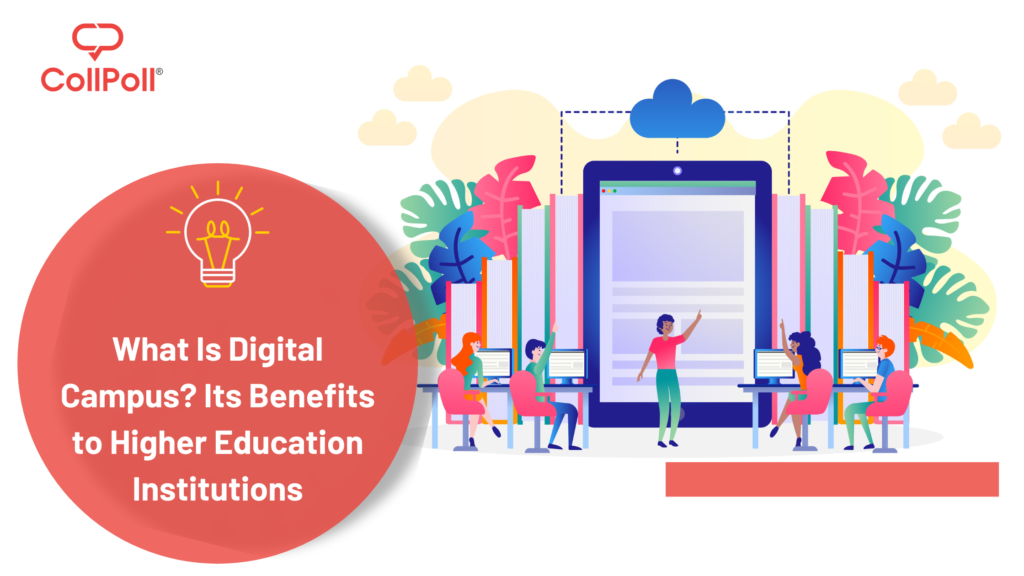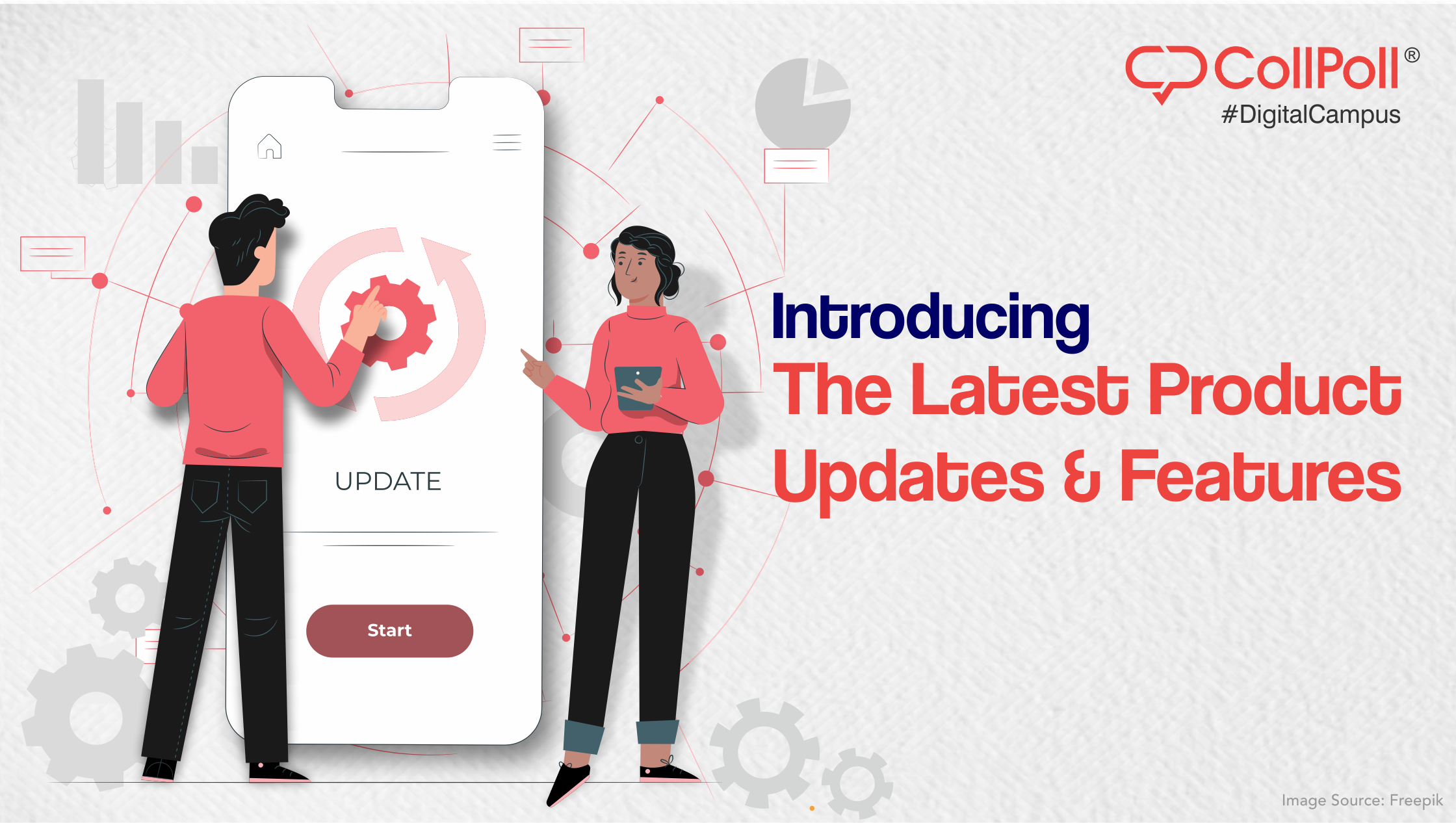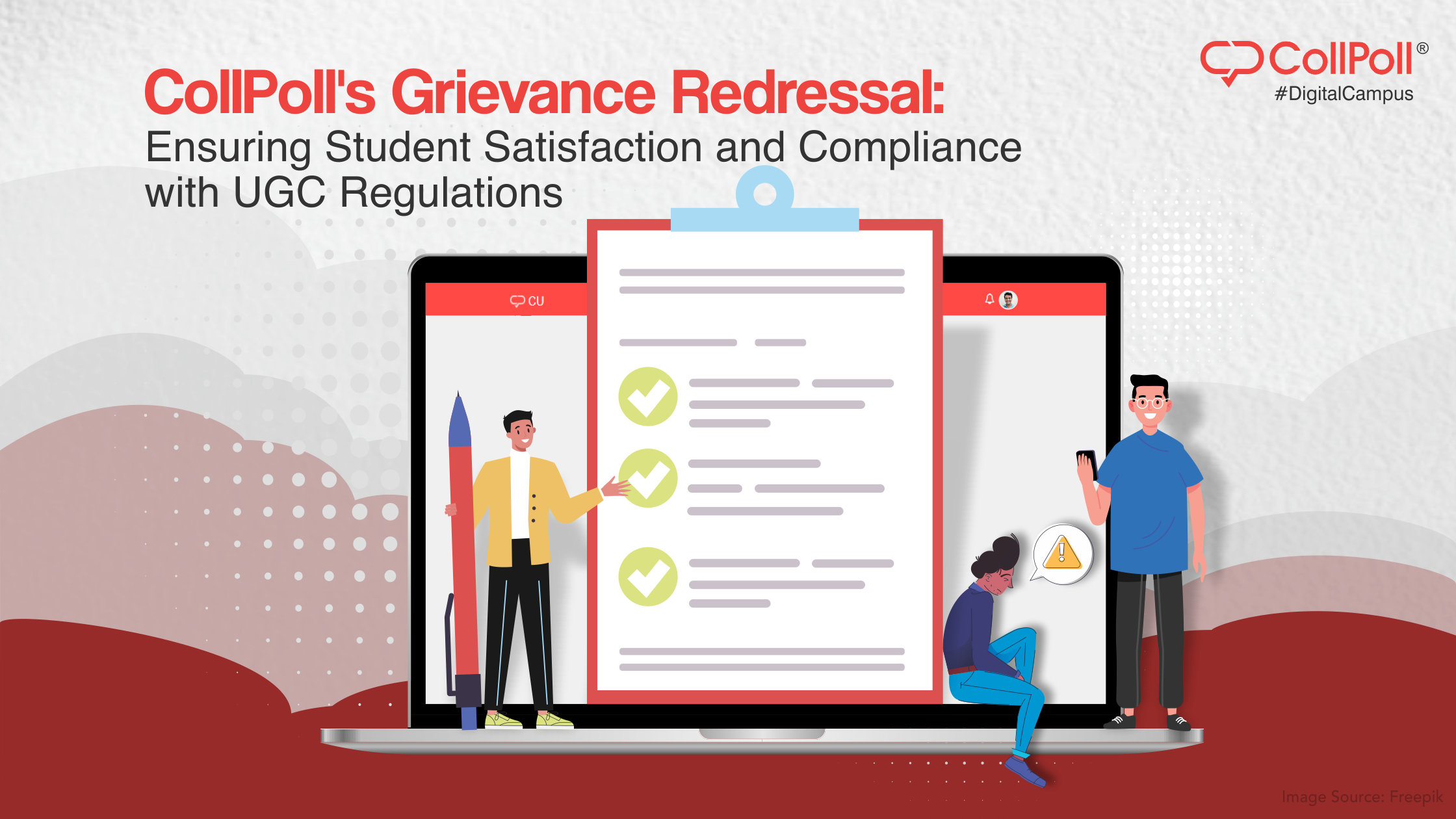Digital Campus: A Smarter Approach to Transforming Higher Education
After businesses, colleges and universities are embracing digital transformation as well. This shift to virtual learning aims at delivering collaborative and interactive classroom sessions to students. Also, it is the need of the hour to attract and retain students, especially after the pandemic.
According to a recent survey, more than 97% of students feel the need for technology even outside their classrooms. Moreover, 87% of scholars have accepted that a university’s tech competency is a critical factor to decide on a college for their higher education. Hence, HEIs are now focusing on a digital campus to automate indoor and outdoor activities.
What Is a Digital Campus?
A digital campus is an environment that collects information from students through their interactions and behaviours, converts it into meaningful data, and derives actionable insights. Considering that many colleges and universities are still offering remote classes, the digital campus covers virtual communities and classrooms as well.
This transformation converts a college into a smart campus and includes common infrastructures that:
- Offers digital assistance to students, such as push notifications, automated reminders & alerts for classwork, prep, and exams.
- Provides contextual summaries and recommendations to students and faculty based on their behaviours.
- Covers reliability, uptime, and other important services that have been the key components of digital transformation.
Furthermore, it provides a consistent way for students to communicate with their teachers and improves safety and emergency communications on a physical campus.
Benefits of a Digital Campus
- Enhanced Student Experiences
For a tech-savvy and well-connected generation, colleges must focus on providing secure, personalised, and convenient experiences. Digital transformation in higher education institutes includes virtual health services, voice-activated assistance, real-time occupancy system, food kiosks, contactless payment, etc. Also, there must be a high level of accessibility to intuitive and hassle-free services. With interactive, automated, and immersive technology, learners can personalise their environment. - Safe College Campus
The safety of students on college campuses has always been a major concern for parents, students, and faculty. Traditional methods with good lighting and round-the-clock patrolling are no more effective to assure protection. Hence, HEIs are integrating internet-based security systems that reduce campus crimes and increase awareness among students. Universities now have AI-powered technologies, such as wireless sensors, smart IP video cameras, smart trackers, and more to safeguard people and assets. - Cost-effective Operations
When university buildings and utilities are connected to smart technologies, it reduces overall operational costs. Automation mitigates manual tasks and chances of errors while saving time and efforts of administrators that can be redirected to other important activities. The robust software solution immediately identifies maintenance needs and sends alerts to authorities who can deploy workers to fix the issue. - Data-driven Decisions
Digital transformation in the education sector assures data-driven decisions in colleges that are based on real-time information and facts. The smart campus management tool collects, analyses, and provides data to advisors, which helps them determine new revenue opportunities, optimise transportation routes, and develop insights. - Improved University Reputation
From dedicated student support services to strong security measures to innovative teaching methods, every element of a smart campus adds to the college’s reputation. It builds a brand that students want to be associated with. Moreover, these happy scholars can give user-generated content to enhance marketing efforts.
How to Transform a University into a Digital Campus?
- Integrated ERP and Information Management System
ERP is a key to support data and operations, including human resources, financial management & planning, campus security, etc., in an institute. Also, the student information system manages the entire lifecycle of scholars by storing their information on a centralised platform and sharing it with the concerned departments. - Disaster Management
With the pandemic situation and sudden lockdown, colleges realised the importance of a multi-layered disaster recovery management system. It ensures minimal downtime and business continuity so that students can learn without disruption regardless of external factors. - Anytime, Anywhere Accessibility
Similar to other technologies and applications, the digital campus is also built with a mobile-first approach. Hence, it can integrate seamlessly with the modern digital ecosystem and allows students to access resources anytime, anywhere using their smartphones. - Data Security
Institutions have to deal with a lot of sensitive data, including financial information, 401K details, staff payroll, research, etc. Administrators have to protect this data from unauthorised access. A digital campus supported by cybersecurity capabilities reduces these threats and risks. - Empower Staff with Digital Skills
Setting up a digital university is not possible without digitally-skilled and trained faculty members. They must know how to navigate a smart campus to schedule courses, design sessions, and conduct exams. Therefore, use a stress-free solution that provides all the critical details in one place, communicates instantly, provides instant feedback, and is easy to operate. - Invest in New Technologies
Digital campuses must adapt and accommodate emerging technologies, such as IoT, augmented reality, artificial intelligence, and more. This will help HEIs keep pace with the evolution in the tech world and embrace innovation without hampering organisational activities.
In Conclusion
Designing a digital campus in colleges and universities requires institutions to leverage modern technologies or update existing ones. This enables them to meet constantly changing students’ demands and adapt to the shifts in the education environment. Hence, making them smarter and giving them an edge over peers.
To implement a smart campus, you need a trusted partner with extensive experience and a high level of understanding. CollPoll preens itself for its proven efficiency in building digital campus strategies that are tailored to your specific needs. We prepare your institutions for the future with our world-class solutions.
For more information, connect with our team now via call or email!





